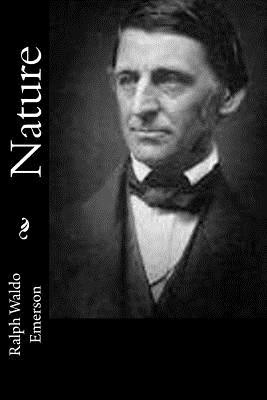
- We will send in 10–14 business days.
- Author: Ralph Waldo Emerson
- Publisher: CreateSpace Independent Publishing Platform
- ISBN-10: 1502948745
- ISBN-13: 9781502948748
- Format: 15.2 x 22.9 x 0.3 cm, softcover
- Language: English
- SAVE -10% with code: EXTRA
Reviews
Description
Nature. Ralph Waldo Emerson. The Foundation of Transcendentalism. "Nature" is an essay written by Ralph Waldo Emerson, and published by James Munroe and Company in 1836. In this essay Emerson put forth the foundation of transcendentalism, a belief system that espouses a non-traditional appreciation of nature. Transcendentalism suggests that the divine, or God, suffuses nature, and suggests that reality can be understood by studying nature. Emerson's visit to the Museum National d'Histoire Naturelle in Paris inspired a set of lectures he later delivered in Boston which were then published. Within the essay, Emerson divides nature into four usages: Commodity, Beauty, Language and Discipline. These distinctions define the ways by which humans use nature for their basic needs, their desire for delight, their communication with one another and their understanding of the world. Henry David Thoreau had read "Nature" as a senior at Harvard College and took it to heart. It eventually became an essential influence for Thoreau's later writings, including his seminal Walden. In fact, Thoreau wrote Walden while living in a self-built cabin on land that Emerson owned. Their longstanding acquaintance offered Thoreau great encouragement in pursuing his desire to be a published author. Emerson followed the success of Nature with a speech, "The American Scholar," which together with his previous lectures laid the foundation for transcendentalism and his literary career.
- Author: Ralph Waldo Emerson
- Publisher: CreateSpace Independent Publishing Platform
- ISBN-10: 1502948745
- ISBN-13: 9781502948748
- Format: 15.2 x 22.9 x 0.3 cm, softcover
- Language: English English
Nature. Ralph Waldo Emerson. The Foundation of Transcendentalism. "Nature" is an essay written by Ralph Waldo Emerson, and published by James Munroe and Company in 1836. In this essay Emerson put forth the foundation of transcendentalism, a belief system that espouses a non-traditional appreciation of nature. Transcendentalism suggests that the divine, or God, suffuses nature, and suggests that reality can be understood by studying nature. Emerson's visit to the Museum National d'Histoire Naturelle in Paris inspired a set of lectures he later delivered in Boston which were then published. Within the essay, Emerson divides nature into four usages: Commodity, Beauty, Language and Discipline. These distinctions define the ways by which humans use nature for their basic needs, their desire for delight, their communication with one another and their understanding of the world. Henry David Thoreau had read "Nature" as a senior at Harvard College and took it to heart. It eventually became an essential influence for Thoreau's later writings, including his seminal Walden. In fact, Thoreau wrote Walden while living in a self-built cabin on land that Emerson owned. Their longstanding acquaintance offered Thoreau great encouragement in pursuing his desire to be a published author. Emerson followed the success of Nature with a speech, "The American Scholar," which together with his previous lectures laid the foundation for transcendentalism and his literary career.


Reviews